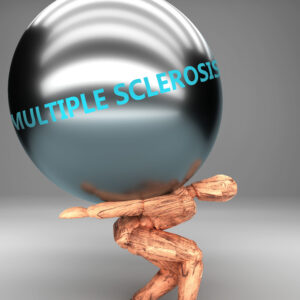“Attitude is Everything”
August 6, 2014
I am an optimist. My husband is a pessimist. If I say “wow, the sky is so blue”, he’ll say “I hate the sun, I like it cloudy.”
They say opposites attract but sometimes I don’t know how I have survived 36 years of marriage with a person who is a pessimist.
My husband and I just got back from a mini camping trip in our RV and truthfully, it really was frustrating. It rained constantly for almost the entire trip, so we were confined to stay in the RV. For me, it was cozy listening to the rain while reading a novel and watching movies. For him, he seemed to complain about everything and didn’t even want to play cards with me.
After being in this situation, I started writing a post about why the need to vent from time to time is essential to your health. This morning I was going to finish it when I came across this article about optimism and pessimism in the newspaper. I felt like it was written for me.
This article is so important, I once again decided to postpone my post-in-process and share this. Not only is optimism necessary to survive life, it is necessary to survive MS. Pessimistic people drag you down, something that is not good if you are trying to cope with a chronic illness.
Optimism trumps pessimism in workplace, life
President Harry S. Truman once said, “A pessimist is one who makes difficulties of his opportunities, and an optimist is one who makes opportunities of his difficulties.”
Which do you think will reach their goals, live a happy life and achieve their dreams?
Imagine interviewing two people who have identical skills, but one is always grumbling about how unfair life can be, while the other one talks about what wonderful possibilities exist.
Naturally, you would gravitate toward the optimist. If you choose the pessimist, you would be setting yourself up for plenty of aggravation and disappointment, not to mention the negative impact on your staff and customers. Pessimism can bring everyone down, not just the person with the negative attitude.
Pessimism is nothing more than self-sabotage. Expecting only the worst is not being realistic. Realists hope for the best but prepare for the worst. Pessimists can’t imagine the best, so they prepare for the worst. And then if the worst never happens? Pessimists often find the worst possible result simply to prove that their concerns were right.
The question becomes, would you rather be right than be happy? That’s not being realistic, either. That’s being self-defeating. Pessimism can rob you of your energy, sap you of your strength and drain you of your dreams.
Optimism is the remedy. Optimism doesn’t mean pre¬tending life is always wonderful. Optimism means embracing reality. You accept that there will be bad days, but also good days. When you’re grounded in reality, you know where you are and how far you need to go. Once you know how far your goal may be from where you are, optimism can give you the motivation to make plans to get to where you want to go.
Pessimists see life as one problem after another. Optimists see life as one opportunity after another.
How you look at life can drastically affect how much you enjoy your life. Optimists expect the best out of life.
Does it make sense that pessimists tend to blame others or circumstances for their failures?
Optimists help create some of the good they come to expect, so they are probably right more often than not — and they don’t waste time worrying about what they’re not right about. Optimism relaxes people. When we’re relaxed, there is better blood flow to the brain, which results in more energy and creativity in your life.
There is virtually nothing that you can’t do if you set your mind to it. You cannot control events in your life, but you can control how you react.
Do you want to be a pessimist and have no hope for a better future? Or would you rather be an optimist and believe you can achieve a better future?
Mackay’s Moral: Attitude is the mind’s paintbrush — it can color any situation.
Harvey Mackay is the author of the New York Times best-seller “Swim With the Sharks Without Being Eaten Alive.” He can be reached through his website, harveymackay.com, or by e-mailing harvey@mackay.com.
In my situation, I learned years ago how to ignore or escape my husband’s negativity. While I succeeded most of the time, the times that I couldn’t get away from it caused tremendous stress. Not only did the stress impact my MS symptoms negatively, it would make me moody and stifle my motivation to move forward. Fortunately, I am a strong-willed person and almost always found alternative sources of optimism (e.g. friends, enjoyable interests/activities…) to lift me up before I got dragged into the depths of an abyss.
Now, in all fairness, my husband is a great guy and has many positive attributes. None of us is perfect. I am a sensitive person who cries easily or pouts. Personality traits are difficult to change; a person has to recognize a change needs to be made and then take great effort to make the changes. But this is a slow process that requires much patience.
If you don’t live with a pessimistic person, it’s easy to get away from him/her. An optimist living with a pessimist will be a lethal combination if coping mechanisms can’t be accomplished.
I know from experience. And I know that one of main reasons I have survived managing my MS is because I am an optimist. Attitude is everything.
www.DebbieMS.com
Author/MS Counselor/Living with MS




 “Overcoming Fear”
“Overcoming Fear”